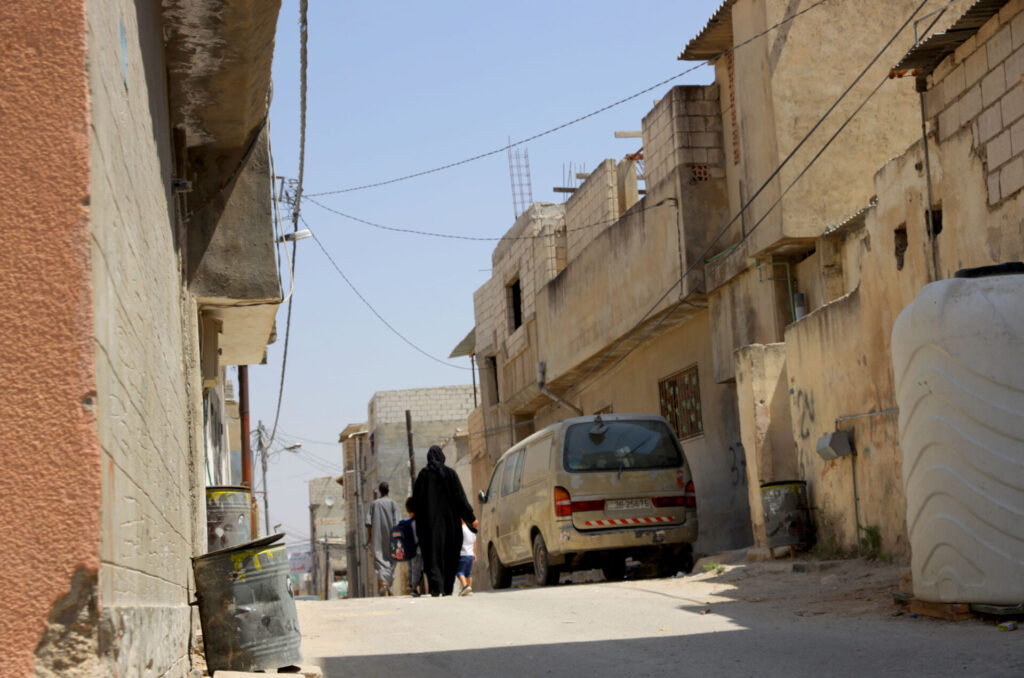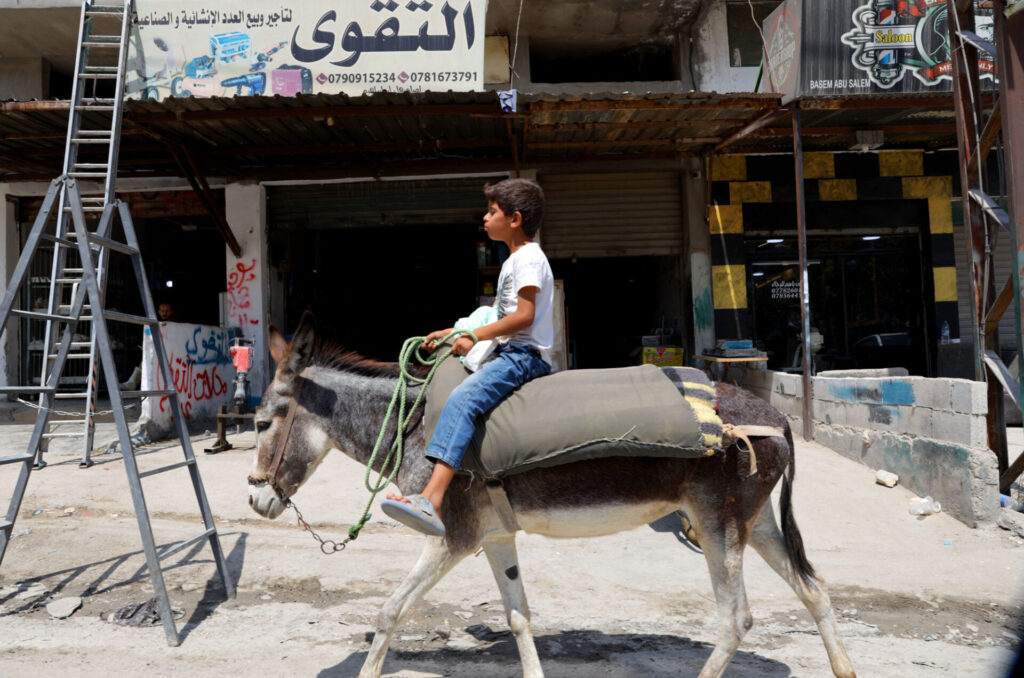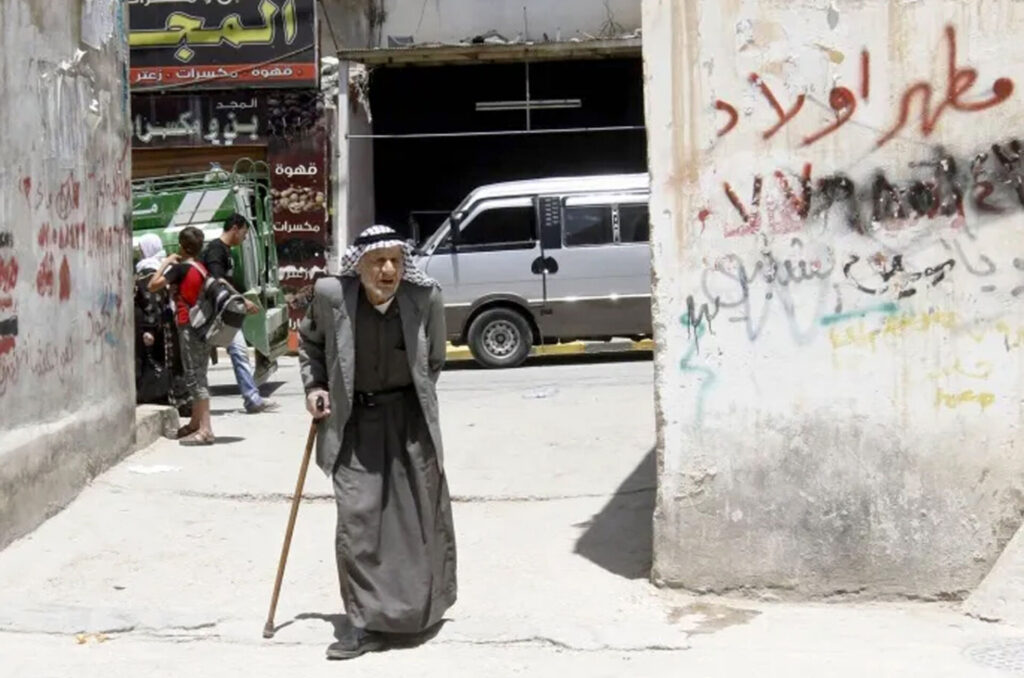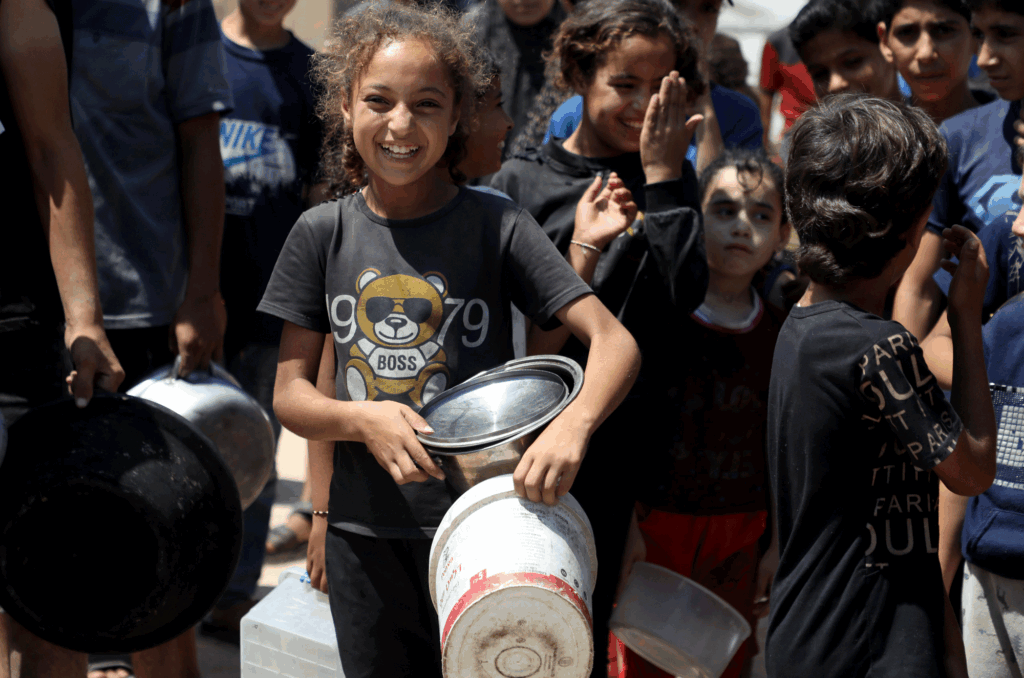Jerash Camp in Jordan is home to tens of thousands of Palestinian refugees
Nestled in the heart of the beautiful city of Jerash in northern Jordan, a community exists that defies adversity on a daily basis: Jerash Camp. Home to a staggering 43,000 residents, this refugee camp has become a symbol of strength and resilience in the face of overwhelming challenges.
Jerash Camp, or Gaza Camp, as it is informally known, began in 1968 as a temporary solution for some 11,500 Palestinian refugees fleeing Gaza during the 1967 war. The camp is around 0.75 square kilometers, and sits just five kilometers from the famous Roman ruins of Jerash. Over the years, it has grown into a densely-packed community of over 31,00 people with makeshift homes and a spirit that refuses to be broken. Only 6% of the people here have been given national IDs and citizenship by Jordan, which limits their opportunities to be hired, get access to healthcare, and own land and stock. Despite the odds, however, the people of Jerash Camp have found ways to adapt, endure, and hold on to their hope.
Economic Hardships
The economic situation in the Jerash Camp is dire. Out of all the ten Palestinian refugee camps in Jordan, Jerash camp is the poorest, with the majority of its inhabitants living below the national poverty line. High unemployment rates and limited opportunities have left many families struggling to make ends meet out of unreliable income. According to a 2021 publication by UNICEF, 20% of households in the camp made below 99 Jordanian dinars ($140 at current exchange rates) per month, 31% between 100-199 dinars per month, and 26% earned between 200-299 dinars per month. The minimum wage in Jordan is 260 dinars per month.
Residents do their best to eke out a living, often relying on informal jobs within the camp or assistance from humanitarian organizations. Other ways that people generate income include taking out loans, selling family jewelry, getting gifts from family and community members, and running small, informal businesses. At least 3% of the residents also use begging to supplement their income.
Palestinians, particularly those living in refugee camps, often find themselves confined to craft work and similar professions. The dream of a stable income and a brighter future remains elusive for many.
The Struggle for Healthcare
Access to adequate healthcare is a daily challenge in Jerash Camp. Over 88% of refugees living there are uninsured, the most of any Palestinian camp in Jordan. With limited resources and overcrowded clinics, residents face difficulties in receiving essential medical care, and many rely on UNRWA as their primary form of healthcare. The camp’s remote location means transportation to medical centers is a major financial roadblock.
A UNICEF survey of parents in the camp whose children had experienced a severe illness in the last year found that fully one-third were unable to obtain medical care for their child. Almost all of them—98%—listed finances as the impediment preventing them from obtaining treatment for their seriously ill children. Over the course of a year, only around 68% of children with severe illness will have professional care.
However, many of the health issues that people in the Camp face are chronic: 45% of adults between 40 and 59 had chronic health conditions, while 22% of children had asthma. Preventative measures, regular check-ups, and consistent treatment are luxuries few can afford. Families often rely on home remedies and the strength of their community to cope with health issues.
Substandard Living Conditions
The living conditions in Jerash Camp are far from ideal. Families reside in cramped spaces, with basic amenities often in short supply. Many homes are reinforced with corrugated roofs and sheets of asbestos, creating serious health issues. Meanwhile, sanitation facilities are inadequate, making daily life a constant struggle.
Food and water is prohibitively expensive. The cost of food prevents 68% of households from having enough food on a weekly basis. In fact, 40% of children in Jerash Camp have two or fewer meals a day. To be able to buy food, 90% of households with food shortages pay for it on credit. Potable water is not readily accessible through the public water network. Only 84% of people have regular access to water, and in the event of water shortage, most take out loans and borrow from family/neighbors to buy bottled water. Without access to basic necessities and regular income, people in Jerash Camp must continually borrow money in order to survive. Yet, amidst these hardships, the spirit of the community remains unbroken.
Anera's work in Jerash Camp
In response to Jerash Camp’s infrastructural challenges, Anera has prioritized medical assistance. Working with the Jordan Medical Aid for Palestinians (JMAP) health center in Jerash camp, Anera has supported the clinic to install an elevator and provide crucial medical donations to refugees.
Thanks to generous donors, Anera also provided the clinic with 38,000 eye glasses and empowered medical practitioners to perform routine eye exams for patients. In some cases, door-to-door care ensured that this program reached the most vulnerable individuals, such as older people and people with disabilities.
Furthermore, Anera has provided the clinic with donations of medications used to treat acute and chronic conditions like sexual reproductive health conditions, chronic diseases and diabetes. These expensive medications are normally out of reach for most of the camp inhabitants.
Your donation can be the beacon of hope in this story. By supporting healthcare, education, and job opportunities, you can help mend broken systems and uplift entire communities.
Together, let's turn despair into determination. Your contribution and donation will help provide essential healthcare, education, and job prospects, offering a brighter future to those who need it most. Let's create a story of resilience, progress, and transformation together.
In the heart of adversity, Jerash Camp stands as a testament to the indomitable human spirit. With your support, we can help this community overcome its challenges and pave the way for a brighter, more hopeful future. Join us in making a difference in the lives of those who deserve it most.







